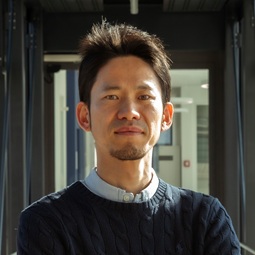Awardee of 2025 Joseph Altman Award
in Developmental Neuroscience, Tomohisa Toda
Tomohisa Toda, Ph.D.
Institut für Medizinische Physik, Friedrich-Alexander Universität Erlangen-Nürnberg, Erlangen Germany
Max-Planck-Zentrum für Physik und Medizin, Erlangen, Germany
Institut für Medizinische Physik, Friedrich-Alexander Universität Erlangen-Nürnberg, Erlangen Germany
Max-Planck-Zentrum für Physik und Medizin, Erlangen, Germany
I am very honored to receive the 2025 Joseph Altman Award in Developmental Neuroscience. I am grateful to Dr. Bayer for providing such a prestigious opportunity to young scientists and to the Japan Neuroscience Society for recognizing our work. I would also like to thank my former and current lab members, mentors, colleagues, and collaborators for working with me.
Since my graduate school days, I have been interested in understanding the temporal regulation of brain development and how different developmental processes are organized to properly develop the brain. Aiming to better understand these dynamic developmental processes and their regulation, I studied the spatiotemporal regulation of sensory circuit formation under the supervision of Dr. Hiroshi Kawasaki (Toda et al., 2013; Toda et al., 2014). Genetic and environmental factors synergistically reorganize neural circuits during critical developmental periods, but even after development, the adult brain must maintain some plasticity to adapt to environmental changes. Drs. Altman and Bayer’s work on brain development and their groundbreaking findings on adult hippocampal neurogenesis made me aware of the importance of adult neurogenesis for brain plasticity. I then began to wonder why certain neural stem cells can maintain their identity and multipotency throughout the life of an organism.
To address this question, during my postdoc under Dr. Fred Gage, I used a combination of epigenomic approaches and super-resolution imaging to investigate the role of nuclear pore proteins, which are part of long-lived protein complexes, in the long-term maintenance of adult neural stem cells. Although most proteins turnover within a day, some proteins, such as lamins and some of nuclear pore proteins, were found to be extremely stable. I identified a critical role of nuclear pore proteins in maintaining epigenetic programs and neural stem cell identity (Toda et al., 2017).
This finding led me to hypothesize that long-lived cellular components in the brain are key players in maintaining brain function and plasticity, but they may also be a common target of aging due to their low turnover rate. Importantly, most brain cells are generated during development, including adult neural stem cells. Due to the limited replacement capacity of the adult brain, these cells must maintain their cellular identity and function throughout life, but it is unclear how they achieve this. To answer these questions, my lab has been investigating the role of long-lived cellular components in adult neural stem cells and post-mitotic neurons. We found that the long-lived protein lamin B1 is enriched in adult neural stem cells but is lost during aging, and that the age-related loss of lamin B1 underlies the age-dependent reduction in adult neurogenesis and mood dysregulation (Bedrosian, Houtman et al., 2021). Additionally, in collaboration with Dr. Martin Hetzer, we have been investigating other long-lived cellular components and have found that some nuclear RNAs are extremely stable in the brain in a cell type-specific manner, and some of them are involved in chromatin integrity (Zocher, McCloskey et al., 2024). This surprising stability of RNA changes our understanding of the central dogma of molecular biology.
Although aging is the most critical risk factor for neurodegenerative diseases, we still don't know why aging causes these diseases. As a result, we still do not have adequate treatments for age-related neurodegenerative diseases such as Alzheimer's disease. It would be exciting to uncover how long-lived cellular components are involved in brain maintenance in long-lived organisms including humans, and to see if they can help fill our knowledge gap in understanding the pathological development of age-related neurodegenerative diseases.
Lastly, it has been quite a journey doing science in four countries over the last 20 years, and I am deeply grateful to my family for their continuous support and understanding.

Tomohisa Toda, Ph.D.
Educational background
2001-2005: BS, Nagoya University
2005-2007: MS, The University of Tokyo
2007-2011: PhD, The University of Tokyo
Work experience
2011-2014: Postdoctoral Fellow, The University of Tokyo
2014-2019: Research Associate, Salk Institute for Biological Studies
2019-2022: Group Leader, German Center for Neurodegenerative Diseases (DZNE)
2022-Present: Professor, Friedrich-Alexander Universität Erlangen-Nürnberg / Max-Planck-Zentrum für Physik und Medizin





